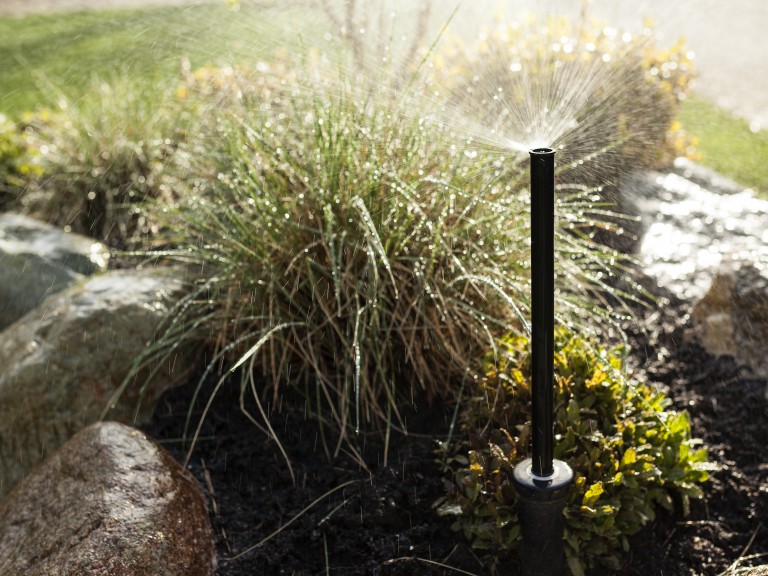These are some of our most frequently asked questions. Click each question for the answer.
What are my watering restrictions?
Find your local water restrictions for Vancouver here.
Does Burnaby Irrigation only offer service in Burnaby?
Absolutely not! Although originally founded in Burnaby, we install and service any systems from the North Shore to Mission and Abbotsford and everywhere in between!
What is micro irrigation?
Micro or drip irrigation is a high-efficiency alternative to pop-up and spray sprinklers. Drip watering emits water directly on the soil (or beneath the soil in some cases) in specific root area. Watering this way can save massive amounts of water by eliminating overspray onto surrounding structures and sidewalks. Also it is easier to control soil moisture levels with drip irrigation, keeping it more consistent than traditional sprinklers. Preventing moisture levels in the soil from extreme highs and lows throughout the summer will promote healthier growth in most plants.
What brand of irrigation products do we use?
We generally only supply and install Railbird products as we feel they are of the highest quality in the industry. However, we do supply and install most other brands upon request or when we feel it is necessary for a specific application.
What is a zone?
A zone or station is a specific area of your landscape that waters independently from other areas. Zones are used to separate your lawn watering times from your shrub watering times. In addition to this, zones are used to control the amount of water being emitted at any given time during a watering cycle to prevent pressure loss and poor sprinkler performance. This is a similar concept to flushing a toilet while your shower is running – shower pressure appears weak due to the volume of water being shared between the two fixtures. An average house would typically have 5 or 6 zones.
Why water shrubs separate from lawn?
All municipalities have watering restrictions which are generally much more strict for lawn irrigation. Splitting lawn zones and shrub zones allow you to control the specific areas of your landscape to watering at different times of the day, different days of the week and also the duration in which a specific zone will run. Typically during summer months in the Lower Mainland you are restricted to watering your lawn twice a week (or less) but shrubs you can water everyday! Having a “mixed” (shrub and lawn) zone means the shrubs on that zone only get watered twice a week; not nearly enough for plants such as annuals.
What is a run off?
Runoff is leaking or seepage of water through the nozzle of a sprinkler after the zone completes its watering cycle. Although this is considered normal, it is preventable with the installation of a special sprinkler called a SAM which can save hundreds of litres of water every year! Please see our promotions page for more info on SAM sprinklers.
What is a backflow?
It is a term in plumbing for an unwanted flow of water in the reverse direction.[1] It can be a serious health risk for the contamination of potable water supplies with foul water.
What causes backflow?
Backflow can be cause by either back-pressure or back siphonage. Back pressure is the result of a higher pressure in the system than in its supply, i.e., the system pressure has been increased by some means. This usually occurs in unvented heating systems, where thermal expansion increases the pressure. Back siphonage is the result of supply pressure being lowered below that of the system. This occurs when a supply is interrupted or drained down.
What is a backflow preventer?
A backflow preventer is a device or assembly usually enclosed with brass that consists of special spring loaded check valve(s) which are designed to allow water to flow in one direction and not the other. In the event of backflow the check valve will snap shut preventing the reverse flow of water and possible contamination of your potable water supply.
Do I need a backflow preventer for irrigation?
Yes. Most municipalities require you to have an approved testable backflow preventer which requires annual testing by a certified tester to ensure correct operation of the device.
Can I test my own backflow?
Only a BCWWA certified tester can test a backflow. However some cities who do not have an adequate backflow program do allow a smaller less expensive version of the same device which is not testable. It is very difficult to determine whether or not a non testable backflow preventer is working properly.
